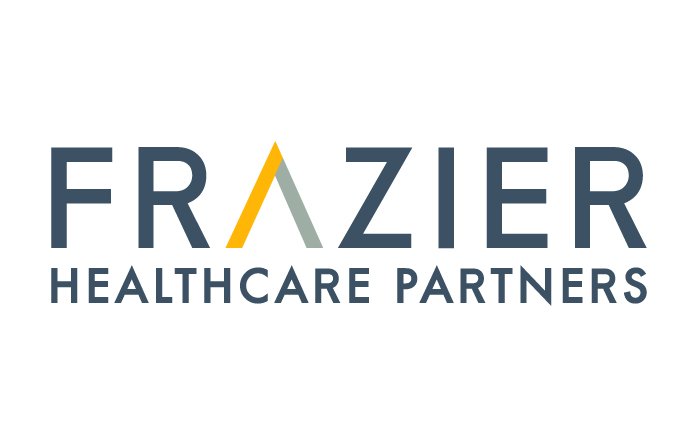By Felix L. Garcia
Remember when the most phenomenal week of the year began when our feet hit the ground at bleeding disorders camp? For me, the joy of that week seems like yesterday, and at the same time, as if it were a lifetime ago. Those feelings get lost as we grow older. A few of us go back as counselors, but for most—school, jobs, relationships, and other grown-up obligations take their place. Those years at camp are precious.
When I was young, there were no camps near where we lived. When I was about 11 years old, my parents contacted the closest HTC in our state and arranged for me to attend. I was blown away! It was the most liberating week of my young life! Every cabin was full of boys just like me. I didn’t have to explain my bruises or why I was limping by the end of the day. After all, everyone else was limping too. There was comfort in knowing we were all going through the same challenges in our lives. We were happy to be together. I can’t think of a fonder memory than that week, and from the start, I looked forward to it all year long.
In my life back home, I was sort of an outcast. Kids looked at me as if I were strange. I was sometimes called a “faker” because I’d arrive at school in the morning just fine but would be in pain and limping by the end of the day. Keep in mind this was before the days of prophylaxis—I infused only when it was needed to treat a bleed. I can only imagine that home life was much the same for my hemophilia brothers.
During my last 2 years at camp, I remember sitting with my cabin mates talking about the HIV/AIDS virus that was running rampant in our community. At that time, we all saw it as a death sentence. Treatment wasn’t what it is today. A couple of my fellow campers knew they had already contracted the virus, while many of us had also, but didn’t know it yet. We talked about how we were all eventually going to get it to help our diagnosed blood brothers feel better. Crazy how such a sad thought might bring comfort to someone. At the time, my parents knew I had HIV but kept it from me for a while. Camp was a safe place though—we talk about everything with each other.
As I look back through adult eyes, the camp experience was different then—in some ways better, but in others, it was barbaric! To me, the week was more about letting these poor kids have the time of their lives for a few days rather than trying to teach them anything. I can’t really say I remember learning much about life skills or how to prepare for the future. My biggest takeaway was learning how to self-infuse though, and that was a huge benefit. With a bleeding disorder, our life span was already jeopardized. Once HIV/AIDS entered the picture, we honestly didn’t have much of a future to look forward to. With no parents hovering over us in this newfound freedom, we weren’t afraid of anything—at least I wasn’t. That mentality may have led to my no longer being invited to camp.
During my last camp year as a 14-year-old, we swam and canoed along a small river where the campground was located. Just downstream was a Girl Scout camp. My cabin mates and I decided to sneak over to visit the girls’ camp. Our (untrained) counselors thought it was a great idea and did nothing to stop us—they cheered us on if anything. And so, with another boy and me deemed the ringleaders, we snuck off in the hush of the dark night in canoes, quietly and covertly passing the security guard… and we got away with it.
I got a kiss on the cheek from a Girl Scout that night. That would have been a sweet, sentimental camp story if it ended there, but of course, it didn’t. The next night, our last night, we organized another expedition to the girl’s camp. Having heard of our previous adventure, other campers joined us, and the group was much larger this time. We couldn’t all travel by canoe, so we had to make the trek on foot. This time, however, the whispers, giggles, and commotion were much too noisy, and we caught the attention of the security guard. Busted! Our adventure failed miserably!
The next morning, eager to avoid my parents learning about the trouble I had gotten into, I waited at the pick-up spot with my luggage. As soon as they drove up, I threw my bags in the car and said, “Let’s go!” We left without my parents ever hearing about what happened the previous night. During a post-camp meeting, it was decided the ringleaders (the other boy and I) were no longer to be invited back to camp. In more modern days, camp is an entirely different ball game. Rather than letting kids run around wild, the focus is on developing boys and girls to be productive, responsible adults who can care for themselves and manage their health condition. In addition to all the fun activities, a lot of rules and oversight to keep everyone safe and out of trouble have been implemented.
I had no idea how much that innocent kiss on the cheek would cost me. It was years before I realized the impact not attending camp would have on me. As a teenage boy with HIV and a debilitating chronic illness in the early 90s, it caused me to lose my support system—I needed my blood brothers. The years that followed were lonely—not a single fellow hemophiliac around. My circle got smaller and smaller as I grew distant from most people. I was a loner who tried to cover my pain with jokes. Those were dark days as the cloud of HIV loomed overhead… I lashed out, and my behavior spiraled to the point I became self-destructive.
It took years to eventually find my way out of that place. I had to learn to cope with the fear of death and the guilt of surviving. Since then, I’ve volunteered as a counselor for years (even at my old camp) and have held various positions within camp committees, always advocating for that one kid who needs more attention or direction.
Once a boy in my cabin acted up and kicked out a window. I fought hard to keep him from being sent home. It turned out his medications had gotten mixed up, and he was off balance. His actions were not his fault. He was allowed to stay and was a perfect camper the rest of the week. I do everything I can to help the camp experience be the very best it can be for all children, not just the easy ones.
My experiences have taught me just how important bleeding disorders camp is for our youth. COVID-19 and its variants have, of course, done a number on our whole world, but on a smaller, more personal level, it’s been horrible for the young people in our bleeding disorders community. It may seem like just a week of fun, but it has taken away the experience of being with others who walk in similar shoes where no explanations are needed. We won’t know the real impact the isolation has on these young lives for years, if ever.
Many organizations understand the importance of camps and have done their best to provide get-togethers in the form of virtual meetings. We all know this isn’t at all the same as being on the campground, but if that’s all that’s available, then let’s get the kids to participate! I implore camp staff to keep volunteering—even if it’s a corny Zoom session, do it! You may not think so, but it does make a difference!
Make it a goal to reach out to former campers and their parents about attending. If you know of a child who is now of camp age, contact their parents and invite them to attend. Parents, we never know what is truly going on in the hearts and minds of our children. We only get to see the portion they choose to share with us. With fellow campers and even counselors, they may, and often do, share another side of themselves. Encourage your child to attend even if they don’t seem interested.
I challenge each of you to share my story and to make the effort to participate in camp. Let’s make sure we are here for our youth especially now when they need us most!
#KeepCampGoing
Stay informed on the latest trends in healthcare and specialty pharmacy.
Sign up for our monthly e-newsletter, BioMatrix Abstract.
We value your privacy. Review our Privacy Policy here.





